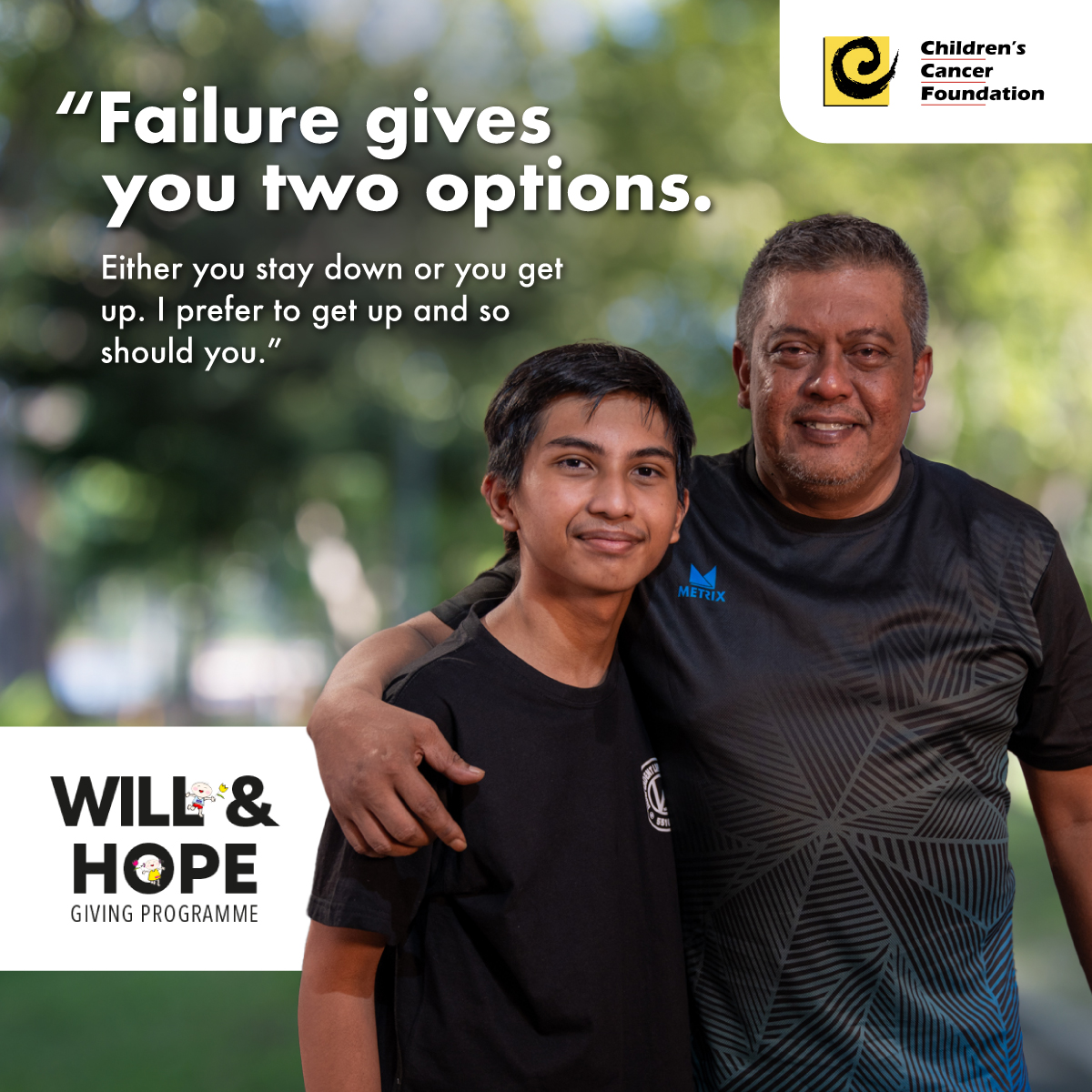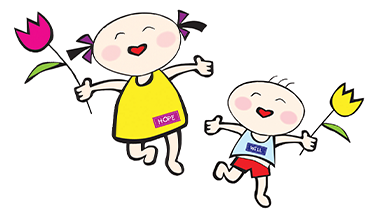“Will and Hope Giving” – a CCF regular giving initiative, aims to encourage more Singaporeans to learn about the prevalence of childhood cancer in Singapore, the psychosocial impacts of a childhood cancer diagnosis in the family, the work of CCF and to become regular donors to support children and families impacted by cancer.

Overcoming the Odds Together
Life for Shahas and his family took a turn when he was diagnosed with a brain tumour at the age of 11. It began with seemingly ordinary fever symptoms, such as vomiting and headaches. Unfortunately, these symptoms eventually deteriorated, and Shahas could no longer keep any food down, alongside having an excruciating headache. This was also when he was rushed to the hospital, where the tumour was diagnosed.
“My wife called me while crying. I couldn’t believe it either,” says his father, Sharil. After speaking with the doctors, it was recommended for Shahas to proceed with a tumour removal surgery. The family discussed and decided to proceed with the surgery – Shahas was still young, and removing the tumour would give him the best chance of enjoying everyday life.
Thankfully, the 13-hour surgery went well. However, the post-surgery tumour test showed that the growth was cancerous. “I felt like (the) problems were coming one after another. It was a big blow to know he had cancer,” recalls Sharil. On top of the diagnosis, Shahas experienced memory loss from the surgery and had to relearn how to walk.
CCF played a critical role in Shahas and his family’s situation. CCF’s social worker, Esther, sat down with the family to work through their issues, advising them they could support Shahas’ condition by offering financial assistance. Esther also explained about chemotherapy and radiotherapy to prepare them for Shahas’ treatment process. “CCF was with us from the very start of the illness. They were supporting not only Shahas but also my family throughout the ordeal. I am very grateful to them,” says Sharil.
Once Shahas began chemotherapy, Esther and Fiona, his primary CCF social worker, kept him company. “Chemo was tough,” he says. “I felt like vomiting and crying. I was thirsty and in pain. Fiona and Esther often talked to me and did activities like puzzles.”
In a wheelchair and undergoing treatment, Shahas was understandably down. Formerly independent and responsible, he missed school and began having negative thoughts. Working closely with his CCF’s social workers and teachers, his parents slowly encouraged him that he could return to school once he recovered. This has also impacted his family. “He was like a new family member to us, and we needed to get to know him again,” explains Sharil, who has three other children. The hardest part for the family was the change in his personality and behaviour.
Now 14, Shahas has put the worst behind him. He can now walk, and though he still has moody days, he has developed a deeper appreciation for his family. Inspired by his parents’ care, he hopes to be a caring father and businessman. “As a businessman, I can help other children with cancer. I can (also) donate to charities for young children and help the homeless,” he explains.
In encouraging other families in similar situations, Shahas says, “Failure gives you two options. Either you stay down, or you get up. I prefer to get up, and so should you.”

